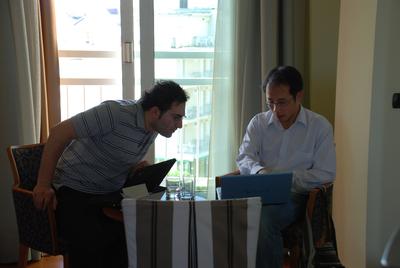KUALA LUMPUR, Malaysia, April 16, 2015 /PRNewswire/ -- The team of seven researchers from Malaysia, the Netherlands, Spain and the UK, including Professor Yasin Temel from Maastricht University Medical Centre, the Netherlands and Associate Professor Dr. Lim Lee Wei from Sunway University, Malaysia, as co-lead authors, discovered that electrical stimulation into the brain via Deep Brain Stimulation (DBS) targeting the prefrontal cortex, treats symptoms of depression most effectively.The prefrontal cortex plays a crucial role in the regulation of complex cognitive, emotional and behavioural functions.

In most cases, depression can be treated effectively by medication, electroconvulsive therapy, or psychotherapy. However, approximately 20% of patients fail to respond to these standard therapies and nearly 60% may not achieve adequate response.
Professor Yasin who is also a neurosurgeon specializing in DBS said, "The use of stimulation electrodes implanted in the brain to control severely disabling psychiatric and neurological conditions is an exciting and fast-emerging area of clinical neuroscience."
Explaining the research, Dr. Lim said, "Prior to this, while clinical studies have demonstrated the efficacy of DBS in treating depression, the most effective brain area to administer DBS for this purpose had not been identified. With this research, we are able to target the prefrontal cortex as a specific modulator of depressive-like behaviours; and obtain the optimum result for treatment with DBS."
Internationally-renowned serotonin researcher, Professor Trevor Sharp, from Oxford University, who is also part of the team said, "There is world-wide interest in the use of stimulation electrodes implanted into the brain to help severely depressed patients who resist other treatments, but the best part of the brain to target is uncertain and this is holding up progress. Stimulation of this prefrontal cortex region influences serotonin cells in other parts of the brain, and these are the cells targeted by antidepressants such as Prozac. Future clinical trials of stimulation in depressed patients now have a clear target in the brain."
The breakthrough findings were published in the Translational Psychiatry, a journal of the Nature Publishing Group and a sister journal to the number-one journal in psychiatry, which focuses on the novel treatment of neuropsychiatry diseases.
The funding of the study was derived from the Netherlands Organization for Scientific Research (Yasin), Parkinson's UK (Trevor), and the Singapore Lee Kuan Yew Research Fellowship (Lim).